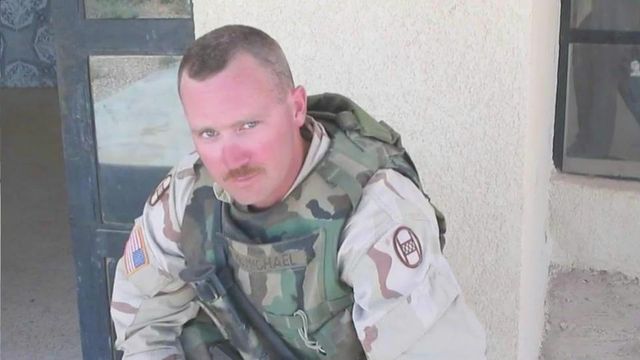NAMI Homefront will help vets' families cope with mental illness
As soldiers return home after their tours overseas, it's clear that some are missing out on vital treatment for mental illness. The National Alliance on Mental Illness, or NAMI, is on a mission to ensure that soldiers are getting the help they need stateside.
Posted — UpdatedAs soldiers return home after their tours overseas, it’s clear that some are missing out on vital treatment for mental illness. The National Alliance on Mental Illness, or NAMI, is on a mission to ensure that soldiers are getting the help they need stateside.
The group is launching a new program, called NAMI Homefront, aimed at helping the large military population living with mental illness. The program is designed to provide as much education and support to veterans' families as military members themselves, said executive director of NAMI N.C. Deby Dihoff.
"The military does so much to protect our own freedoms that we need to up our game in terms of how we support them when they return," she said. "They're returning, and they're a different person. So the whole family dynamic has to get around that and be accepting and helpful."
Readjusting to family life is something 1st Lt. Mike McMichael understands. McMichael served in Iraq with the North Carolina National Guard and was hit by an improvised explosive device that exploded outside his door in 2005. He was diagnosed with a traumatic brain injury and Post Traumatic Stress Disorder, or PTSD, two years later.
McMichael remembers feeling out of control when he got home.
"Basically, you're having fight or flight symptoms," he said. "(My) heart was racing. Just a lot of pain in my chest."
McMichael's situation isn't uncommon. Recent studies show that more than 20 percent of service members nationwide are affected by mental illnesses such as PTSD. In North Carolina, a state with the fourth-largest military population, the veteran suicide rate is one and a half times more than the overall rate, according to a 2013 state report.
While the statistics are grim, McMichael said having a strong foundation of support is key to returning to a new kind of "normal" life.
"You really have to bring in that support group and educate them," he said.
• Credits
Copyright 2024 by Capitol Broadcasting Company. All rights reserved. This material may not be published, broadcast, rewritten or redistributed.





